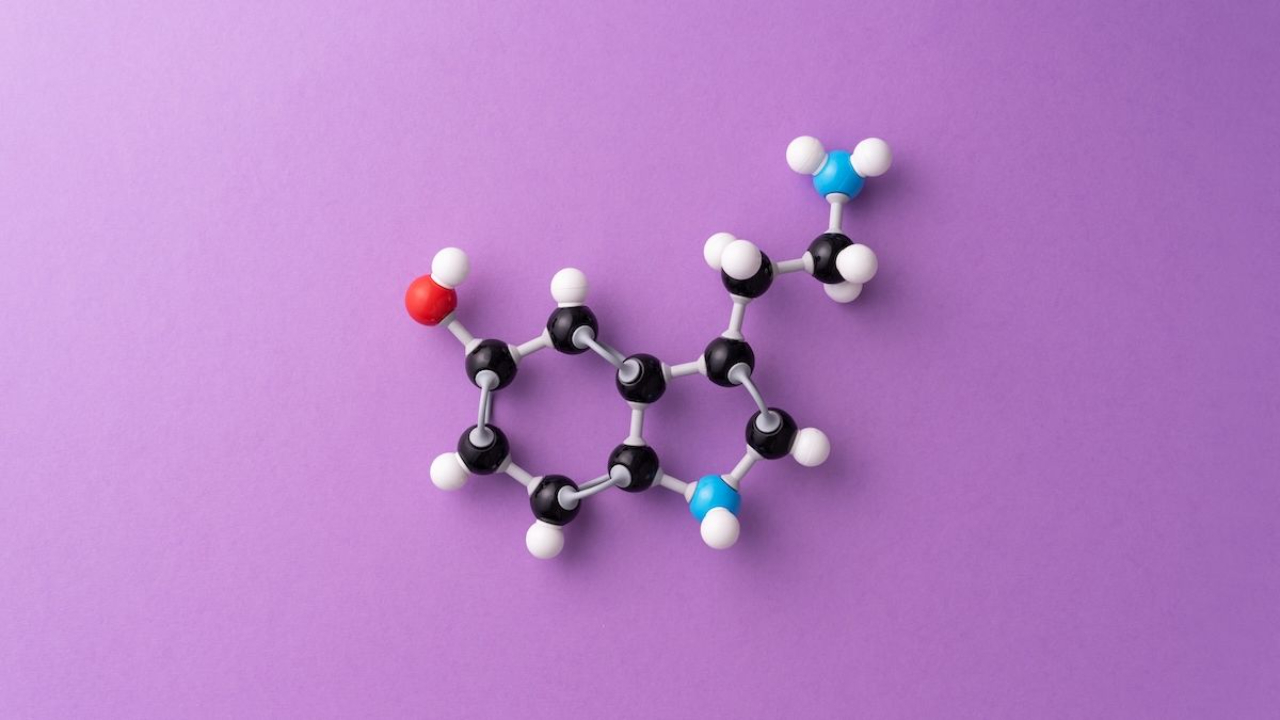How microdosing may interact with your hormones
Mar 21, 2025
Microdosing is often associated with enhanced focus, creativity, and emotional balance. But what role do hormones and neurotransmitters play in these effects? Psychedelics interact with key brain chemicals such as serotonin and dopamine – both of which influence mood, motivation, and overall well-being. Could microdosing be subtly reshaping our neurochemistry?
Serotonin is one of the primary neurotransmitters affected by psychedelics. It plays a central role in regulating mood, stress, and emotional resilience. Research by Carhart-Harris et al. suggests that psychedelics, even in small doses, enhance serotonin receptor activity, which may contribute to improved emotional regulation and well-being.
Additionally, findings from Hutten et al. indicate that microdosing could help stabilize serotonin levels, potentially reducing anxiety and depressive symptoms over time. Since serotonin is also a precursor to melatonin, the hormone responsible for sleep regulation, some microdosers report improved sleep patterns, though research on this effect is still emerging.
Dopamine: Motivation, reward, and focus
Dopamine, often referred to as the brain’s motivation and reward chemical, is responsible for goal-directed behavior and focus. Some researchers speculate that microdosing may indirectly influence dopamine levels, leading to increased motivation, concentration, and problem-solving abilities.
Cameron et al. found that psychedelics promote synaptic plasticity, which may enhance dopamine-related pathways involved in learning and motivation. Anecdotal reports from professionals and creatives suggest that microdosing helps sustain attention and supports productivity, effects commonly associated with enhanced dopamine function.
Cortisol and the stress response
Cortisol, the body’s primary stress hormone, can impact energy levels, mood, and overall health. Chronic stress leads to elevated cortisol levels, which can disrupt cognitive function and emotional balance. Research by Olson et al. suggests that psychedelics, including microdoses, may help regulate the stress response by reducing cortisol production.
Many microdosers report feeling more emotionally resilient and less reactive to stress, suggesting a potential interaction between psychedelics and the body's hormonal regulation.
Oxytocin: The connection hormone
Oxytocin, known as the “bonding hormone,” plays a role in trust, social bonding, and emotional connection. While there is limited direct research on microdosing and oxytocin, some experts believe that enhanced emotional openness and empathy reported by microdosers may be linked to subtle shifts in oxytocin regulation. Studies by Prochazkova et al. observing increased emotional openness and social connectedness in microdosers support this possibility.
A delicate balance
Microdosing appears to interact with key neurotransmitter systems, particularly serotonin and dopamine, which could explain its reported effects on mood, focus, and stress resilience. While research is still in its early stages, existing studies and anecdotal reports suggest that microdosing may influence brain chemistry in ways that promote mental clarity, emotional stability, and overall well-being. Future studies will be crucial in further understanding how microdosing subtly reshapes our hormonal and neurochemical balance.
---
Sources: Carhart-Harris et al. (2018), "Neuropsychopharmacology"; Hutten et al. (2020), "Therapeutic Advances in Psychopharmacology"; Cameron et al. (2021), "Nature Medicine"; Olson et al. (2022), "Neuropsychopharmacology"; Prochazkova et al. (2018), "Psychopharmacology"; Research from Imperial College London.

